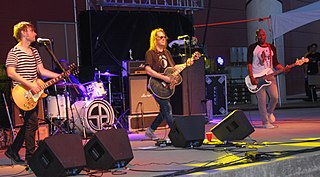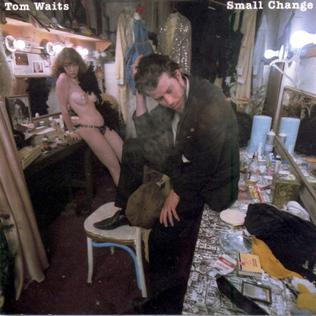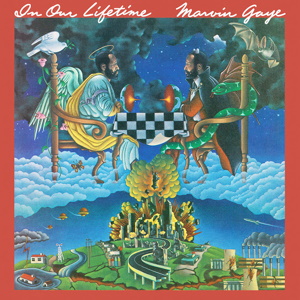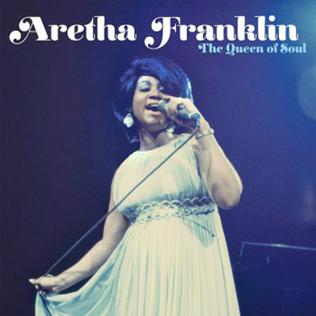
Soul Asylum is an American rock band formed in 1981 in Minneapolis, Minnesota. Their 1993 hit "Runaway Train" won the Grammy Award for Best Rock Song.

William Everett Preston was an American keyboardist, singer and songwriter whose work encompassed R&B, rock, soul, funk, and gospel. Preston was a top session keyboardist in the 1960s, backing Little Richard, Sam Cooke, Ray Charles, the Everly Brothers, Reverend James Cleveland, the Beatles and the Rolling Stones. He gained attention as a solo artist with hit singles "That's the Way God Planned It", the Grammy-winning "Outa-Space", "Will It Go Round in Circles", "Space Race", "Nothing from Nothing", and "With You I'm Born Again". Additionally, Preston co-wrote "You Are So Beautiful", which became a No. 5 hit for Joe Cocker.

Small Change is the fourth studio album by singer and songwriter Tom Waits, released on September 21, 1976 on Asylum Records. It was recorded in July at Wally Heider's Studio 3 in Hollywood. It was successful commercially and outsold his previous albums. This resulted in Waits putting together a touring band - The Nocturnal Emissions, which consisted of Frank Vicari on tenor saxophone, FitzGerald Jenkins on bass guitar and Chip White on drums and vibraphone. The Nocturnal Emissions toured Europe and the United States extensively from October 1976 till May 1977.

The Times They Are a-Changin' is the third studio album by the American singer-songwriter Bob Dylan. It was released on February 10, 1964, through Columbia Records. Whereas his previous albums, Bob Dylan and The Freewheelin' Bob Dylan, combined original material and cover songs, this was the first to feature only original compositions. The album consists mostly of stark, sparsely arranged ballads concerning issues such as racism, poverty, and social change. The title track is one of Dylan's most famous; many feel that it captures the spirit of social and political upheaval that characterized the 1960s.

In Our Lifetime? is the sixteenth studio album by soul musician Marvin Gaye, released January 15, 1981, on Motown label Tamla Records. Recording sessions for the album took place at Marvin's Room in Los Angeles, California, Seawest Recording Studio in Honolulu, Hawaii, and at Odyssey Studios in London, England, throughout 1979 and 1980. The album cover was designed by Neil Breeden. Gaye's final album for Motown before leaving for Columbia Records, the album was the follow-up to the commercial failure of Here, My Dear, a double album which chronicled the singer's divorce from Anna Gordy. Entirely written, produced, arranged, and mixed by Gaye, In Our Lifetime? was a departure for Gaye from the disco stylings of his previous two studio efforts and was seen as one of the best albums of the singer's late-Motown period.
Grant Young is an American musician who was the drummer for the alternative rock band Soul Asylum from 1984–1995. He replaced Pat Morley shortly after the release of Soul Asylum's debut album, Say What You Will, Clarence...Karl Sold the Truck in 1984. Young's last appearance on a Soul Asylum record album was the breakthrough album, Grave Dancers Union. He was replaced in the middle of the recording sessions by Sterling Campbell, who has also since left the band and is primarily associated with David Bowie, as part of his touring bands.

Say What You Will... is the debut studio album by American rock band Soul Asylum. It was originally released on August 24, 1984 by Twin/Tone Records, and produced by Hüsker Dü's Bob Mould.

Diana & Marvin is a duets album by American soul musicians Diana Ross and Marvin Gaye, released October 26, 1973 on Motown. Recording sessions for the album took place between 1971 and 1973 at Motown Recording Studios in Hollywood, California. Gaye and Ross were widely recognized at the time as two of the top pop music performers.

"Messin' with the Kid" is a rhythm and blues-influenced blues song originally recorded by Junior Wells in 1960. Chief Records owner/songwriter/producer Mel London is credited as the songwriter. Considered a blues standard, it is Junior Wells's best-known song. "Messin' with the Kid" was inducted into the Blues Hall of Fame and has been recorded by a variety of blues and other artists.
"Cocaine Blues" is a Western swing song written by Troy Junius Arnall, a reworking of the traditional song "Little Sadie." Roy Hogsed recorded a well known version of the song in 1947.

The Johnny Cash Sun Records discography details the music recorded by country music legend Johnny Cash and released on Sun Records. From late 1954 to July, 1958, Cash recorded for Sun Records, a label founded by Sam Phillips and located at Sun Studio in Memphis, Tennessee. Despite making his final recordings for Sun in 1958 and subsequently moving to Columbia Records, Phillips amassed sufficient backlog to continue to release new material by Cash in single and album format until as late as 1964.

The discography of American alternative rock band Soul Asylum consists of 12 studio albums, two live albums, five compilation albums, two extended plays (EPs), 22 singles, and 17 music videos. Formed in 1981 in Minneapolis, Minnesota using the name Loud Fast Rules, the band's original lineup consisted of vocalist Dave Pirner, guitarist Dan Murphy, bassist Karl Mueller, and drummer Pat Morley. The band changed their name to Soul Asylum prior to the release of Say What You Will... Everything Can Happen in 1984. Later that year, Morley was replaced on drums by Grant Young.

See All Her Faces is the seventh studio album by singer Dusty Springfield, originally released on the Philips Records label in 1972. It contains a mixture of tracks from different recording sessions; some tracks were recorded with Jeff Barry for an aborted third album for Atlantic Records, other tracks were recorded for Philips in the UK between April and July 1970 – these came to be Springfield's final recordings with longtime producer and arranger Johnny Franz. Some, such as "Willie and Laura Mae Jones", recorded with Jerry Wexler, Tom Dowd and Arif Mardin, had been previously released as singles in the US. See All Her Faces collects many of those tracks, recorded from 1969 to 1971, placing seven of the British recordings on Side A, while Side B comprises tracks recorded both in the UK and the US. As a result, the album has no cohesive sound, but offers many different styles of music. The album boasts eight producers, including Springfield herself. It has been suggested that See All Her Faces is best appreciated track by track, rather than as a whole stylistic statement, as her album Dusty in Memphis is often praised to be.

Great White Wonder, or GWW, is the first notable rock bootleg album, released in July 1969, and containing unofficially released recordings by Bob Dylan. It is also the first release from bootleg record label Trademark of Quality. Seven of the twenty-four tracks presented here were recorded with The Band in the summer of 1967 in West Saugerties, New York, during the informal sessions that were later released in a more complete form in Dylan's 1975 album The Basement Tapes. Much of the other material consists of a recording made in December 1961 in a Minnesota hotel room, studio outtakes from several of Dylan's albums, and a live performance on The Johnny Cash Show. It was the first time that these previously unreleased recordings came to the market; many more would be released in similar formats over the coming years, though most were single albums, not double albums like this record.

Tommy Hunt is an American soul/northern soul singer, and a 2001 Rock and Roll Hall of Fame Inductee as a member of famed R&B group The Flamingos.

Queen of Soul: The Atlantic Recordings is an 86-track, four-disc box set detailing Aretha Franklin's Atlantic career, starting in 1967 with the landmark single "I Never Loved a Man " and ending with 1976's "Something He Can Feel".

There's a Riot Goin' On is the fifth studio album by American funk and soul band Sly and the Family Stone. It was recorded from 1970 to 1971 at Record Plant Studios in Sausalito, California and released later that year on November 1 by Epic Records. The recording was dominated by band frontman/songwriter Sly Stone during a period of escalated drug use and intra-group tension.















